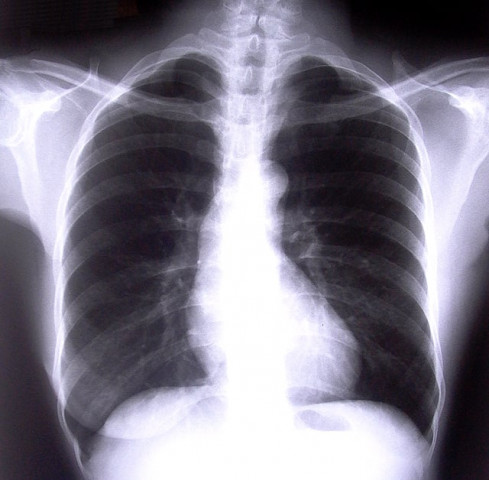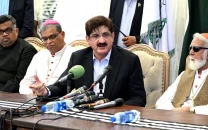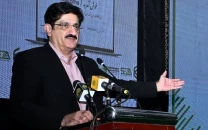A TB centre in Ojha that doesn’t believe in just treating the illness
Doctors at the Ojha Institute of Chest Diseases have learnt that skills training goes a long way.

There are an estimated 17,000 people in Pakistan who suffer from Multi Drug Resistant (MDR) tuberculosis (TB). About 3,000 of them live in Sindh. MDR shows up in patients with TB who are not treated properly. Right now, Pakistan bears 55 per cent of the TB burden in the Eastern Mediterranean region and ranks eighth highest in the world. This makes TB a major public health problem.
One centre that deals with people suffering from the illness is the Ojha Institute of Chest Diseases (OICD). The centre, funded in part by the Dow University Hospital and private donors, admits on average between five and 10 patients while the clinics service up to 800 patients daily. At any time, about 200 patients are admitted in its wards.
From the outside, the building looks like any other but the work that goes on inside is what makes the doctors’ approach towards treating people different. For them it is about treating a patient and not just a symptom chart.
In December, under the supervision of OICD director Dr Iftekhar Ahmed, the centre started offering a life skills training workshop. The aim was to train patients (who are not severely ill and can easily move around) and their attendants in skills such as candle making, crafts, making Sindhi topis and ajraks, sewing children’s clothes and making ‘azarbunds’.
So far, making candles has dominated the sessions but recently sewing and making azarbunds were added to list. Crafting topis and ajraks is expected to start soon.
Dr Shahnaz Iffat, who is the deputy director of social welfare at OICD and in charge of the project, says since they are still in teething their turnover isn’t very high but eventually they would like a private donor or NGO to help sell the items. “The prices are deliberately kept a little high to increase the profit margins as the money goes into the patient’s pocket,” she explained. For example, small heart-shaped candles made especially for Valentine’s Day sold for Rs50 while slightly larger cone-shaped ones with designs carved into them and filled with glitter were bought for Rs200.
About 40 men and women take part in the workshop training and since it started dozens have come away with new found skills and a few of them have even started small home businesses after being discharged. “Candle making is definitely the most popular as it is the easiest and quickest,” Iffat explains. “Also, in these time of excessive load shedding, people can make good money from it.”
Another initiative at the centre takes place on the upper level of the building. In a corner dedicated to board games for patients and their friends and relatives lies a carom and dart board along with a set of Ludo and snakes and ladders. The idea and items were donated by Yasmin Trust, an NGO that has been working closely with the centre for the last several years.
However, Dr Ahmed decided to use the opportunity to blend the play with a few quick educational sessions as well. “We had a lot of issues with patients and their attendants eating inside the wards and just leaving the food lying around for the cats to come and feast,” he said. The cleanliness made their work more difficult so they decided to address them in small sessions with patients and others in the play corner. In a little over a month, they saw small improvements. And these small initiatives have also shown the doctors that they have been learning as well — how to make patients part of the treatment.
Published in The Express Tribune, June 11th, 2011.



















COMMENTS
Comments are moderated and generally will be posted if they are on-topic and not abusive.
For more information, please see our Comments FAQ